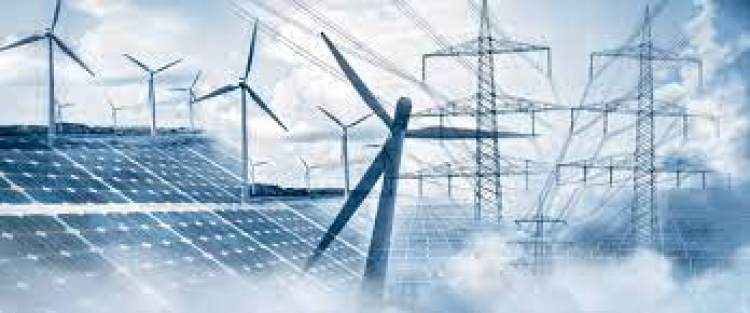Ukraine war accelerates energy transition across UK, Europe

Fourteen months on, Russia’s invasion of Ukraine has had the effect of turbocharging the transition to renewable forms of energy, as the wider European region seeks to wean itself off Russia’s oil and gas supply
Airmic was invited to attend a forum on Ukraine and the energy transition, organised by the Strategic Council in London on 20 April, during which Ukrainian and UK government officials convened with the UK business community as Ukraine starts to plan for post-war reconstruction. Strategic Council is an organisation which cultivates knowledge networks across business communities, primarily in the emerging European economies.
The transition to more renewable forms of energy has naturally been top of the agenda. The war has shown up the geopolitical and economic perils of the European continent’s dependence on Russia’s energy supplies. That has now catalysed greater integration and alignment between the European Union’s and Ukraine’s energy systems.
In discussions on renewable energy between governments and the business community, green hydrogen energy has emerged as a key area of collaboration between Ukraine and the UK, in recognition of the UK’s world-leading capabilities in hydrogen storage technology.
The resilience of Ukraine’s energy infrastructure has also been a focus, given that it has been a key target of Russian forces. The Ukrainian authorities have become more adept at. For instance, they are now largely able to continue operating Ukraine’s power supply whenever their employees are hunkered down in bomb shelters.
Post-war reconstruction and the private sector
While grateful for the generosity of its international partners in terms of aid sent, the Ukrainian government is now keen for the private sector to be more involved in rebuilding an economy wrecked by war.
There are businesses that want to invest in Ukraine for ethical and financial reasons, but the insurance market is either unwilling or has very limited capacity to underwrite such risks, given the situation on the ground. Public sector providers of political risk insurance – such as agencies under the World Bank Group – have been urged to play a greater role here.
There were frank discussions on other challenges faced. Even as there is understanding of the Ukrainian government’s immediate priorities amid the war, Ukrainian and international businesses are pressing them to make progress on developing the mechanisms to compensate for losses incurred by citizens and businesses arising as a result of Russia’s military aggression. That would allow affected parties to pursue their claims against Russia for compensation for damage in Ukrainian civil and criminal proceedings.
Equally candid were the observations as to corruption in Ukraine as a barrier to more enthusiastic private sector investment. Nevertheless, the general perception has been that corruption issues have improved, given that there has been less tolerance for the misuse of funds while the state faces an existential threat.
“The forum has provided the platform to bring government and business leaders together,” said Stephen Butler, managing director of the Strategic Council. “Airmic members, as well as the risk and insurance community at large, have a crucial role to play in tackling the two biggest challenges of our time – geopolitics and climate change."
